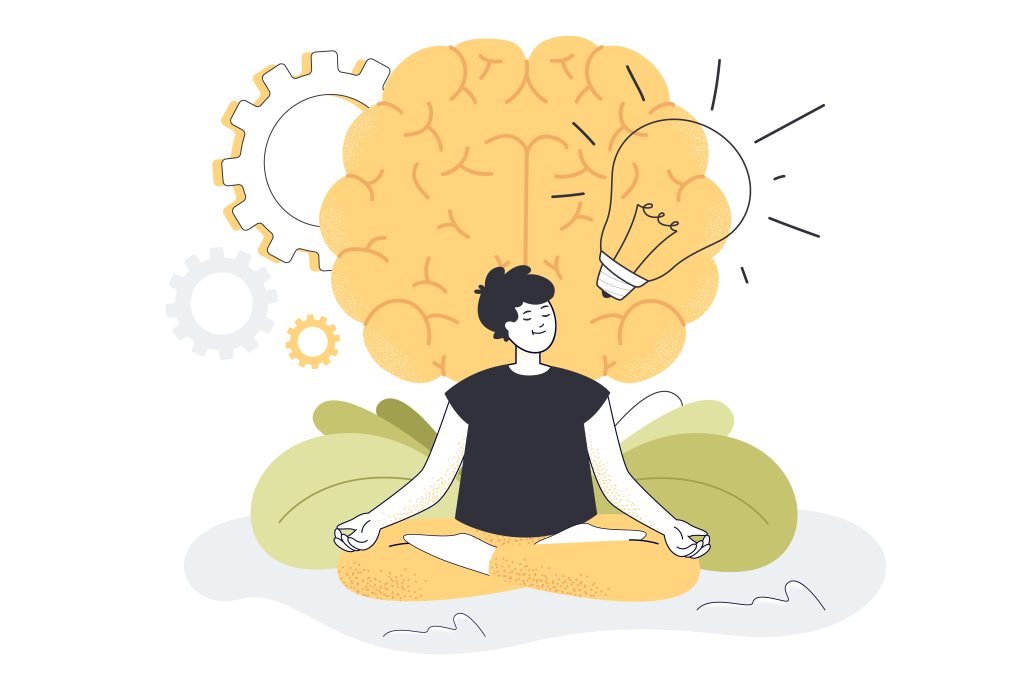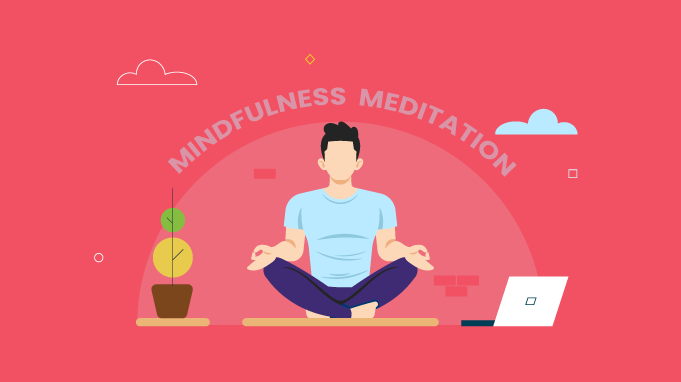Mindful Moments: Exploring the Benefits of Meditation
In today’s fast-paced world, with its constant barrage of distractions and demands, finding moments of peace and clarity can feel like a rare luxury. Yet, amidst the chaos, lies a powerful practice that offers a pathway to inner calm and profound self-awareness: mindful meditation.
Rooted in ancient contemplative traditions and backed by modern scientific research, mindful meditation has gained widespread recognition for its transformative effects on mental, emotional, and physical well-being.
In this comprehensive guide, we will explore the art and science of mindfulness meditation, delving into its origins, principles, techniques, and numerous benefits.
Origins and Principles of Mindfulness Meditation:
Mindfulness meditation traces its roots back to ancient contemplative practices found in various spiritual traditions, including Buddhism, Hinduism, and Taoism. However, its modern adaptation stems largely from the teachings of the Vipassana tradition within Theravada Buddhism and the mindfulness-based interventions developed by Jon Kabat-Zinn in the late 20th century.
At its core, mindfulness meditation involves cultivating moment-to-moment awareness of one’s thoughts, feelings, bodily sensations, and surrounding environment with a non-judgmental and accepting attitude. The practice encourages individuals to observe their inner experiences without attachment or aversion, allowing them to develop a deeper understanding of the workings of the mind and cultivate greater equanimity in the face of life’s challenges.

Techniques of Mindful Meditation:
While mindfulness meditation encompasses a wide range of techniques and practices, some of the most common methods include:
Breath Awareness:
This foundational practice involves directing attention to the sensations of the breath as it enters and leaves the body. Practitioners may focus on the rise and fall of the abdomen, the feeling of air passing through the nostrils, or the subtle movements of the chest. By anchoring awareness to the breath, individuals cultivate concentration, presence, and a sense of inner stability.
Body Scan
In this practice, individuals systematically scan their body from head to toe, paying attention to any sensations, tensions, or areas of discomfort. With each breath, they gently release tension and bring awareness to different parts of the body, promoting relaxation, embodied presence, and deepening awareness of bodily sensations.
Loving-kindness Meditation:
Also known as Metta meditation, this practice involves cultivating feelings of love, compassion, and goodwill toward oneself and others. Practitioners may silently recite phrases such as “May I be happy, may I be healthy, may I be safe, may I live with ease,” extending these wishes outward to loved ones, acquaintances, and even difficult individuals. Loving-kindness meditation fosters a sense of interconnectedness, empathy, and emotional resilience.
Open Awareness:
This practice involves expanding awareness to include the full range of sensory experiences, thoughts, and emotions arising in the present moment. Instead of focusing on a specific object or sensation, practitioners adopt a spacious and inclusive awareness that allows everything to arise and pass away without judgment or attachment. Open awareness meditation cultivates a sense of spaciousness, clarity, and insight into the nature of reality.

Benefits of Mindful Meditation:
The benefits of mindfulness meditation extend to various domains of human experience, including mental, emotional, and physical well-being. Here are some of the key benefits supported by scientific research:
Stress Reduction:
Mindfulness meditation has been shown to significantly reduce levels of perceived stress and physiological markers of stress, such as cortisol levels and heart rate variability. By cultivating present-moment awareness and non-reactivity to stressors, mindfulness meditation helps individuals develop greater resilience and coping mechanisms for dealing with life’s challenges.
Improved Mental Health:
Numerous studies have demonstrated the efficacy of mindfulness meditation in reducing symptoms of anxiety, depression, and other mood disorders. By promoting acceptance, self-compassion, and emotional regulation, mindfulness meditation enhances psychological well-being and fosters a greater sense of inner peace and contentment.
Enhanced Cognitive Function:
Mindfulness meditation has been linked to improvements in cognitive function, including attention, memory, and executive functioning. By training attentional control and cognitive flexibility, mindfulness meditation enhances cognitive performance and decision-making abilities, leading to greater clarity of mind and mental agility.
Better Emotional Regulation:
Mindfulness meditation cultivates greater awareness and acceptance of one’s thoughts and emotions, allowing individuals to respond to challenging situations with greater equanimity and compassion. By developing a non-reactive stance toward internal experiences, mindfulness meditation reduces emotional reactivity and promotes healthier ways of coping with difficult emotions.
Physical Health Benefits:
Mindfulness meditation has been associated with numerous physical health benefits, including lower blood pressure, improved immune function, and reduced inflammation. By promoting relaxation, stress reduction, and mind-body integration, mindfulness meditation supports overall physical well-being and enhances resilience against illness and disease.

Practical Tips for Cultivating a Mindful Meditation Practice:
Start Small:
Begin with short meditation sessions of 5-10 minutes. Gradually increase the duration as you become more comfortable with the practice.
Find a Quiet Space:
Choose a quiet and comfortable space where you can meditate without distractions. You may also consider using props such as cushions or chairs to support your posture.
Set Realistic Expectations:
Approach awareness in meditation with an open mind and without judgment. Understand that the mind will inevitably wander, and that’s okay. The practice is about gently guiding your attention back to the present moment without self-criticism.
Consistency is Key:
Establish a regular meditation routine by practicing daily, even if it’s just for a few minutes. Consistency is more important than duration when it comes to building a meditation habit.
Be Gentle with Yourself: Approach your meditation practice with kindness and self-compassion. Treat yourself with the same care and understanding you would offer to a dear friend.
Conclusion:
Mindful meditation offers a profound path to self-discovery, inner peace, and holistic well-being. By cultivating moment-to-moment awareness and non-judgmental acceptance, individuals can transform their relationship with themselves and the world around them. As you embark on your mindful meditation journey, may you find solace in the present moment, clarity amid uncertainty, and joy in the simple act of being. Browse this site to explore more about mindful meditation.
Mindful meditation is an invitation to embark on a journey of self-discovery and transformation. A journey that holds the promise of greater clarity, compassion, and connection with ourselves and the world around us. As we embark on this journey together, may we embrace each moment with mindfulness and curiosity. May we discover the boundless potential that lies within the depths of our awareness.
